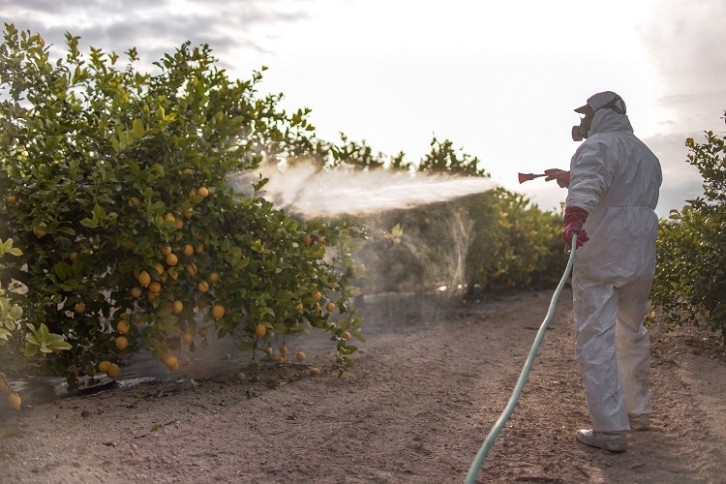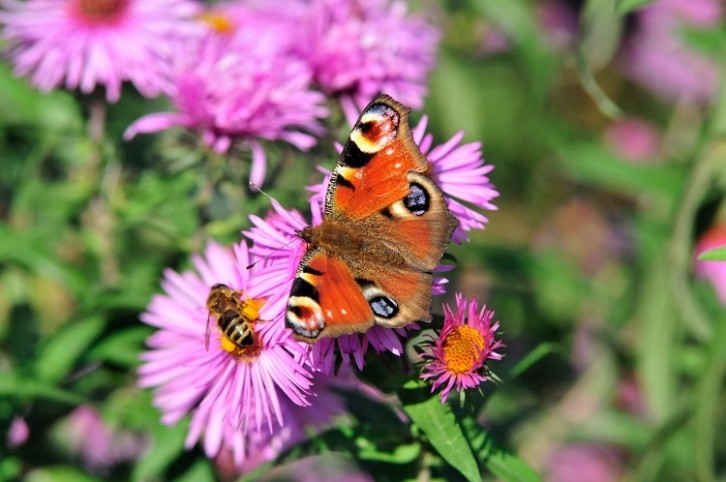One of many largest objections to a discount in pesticide use by farmers is the assumption that it’s going to end in decrease crop yields. Actually, only recently, the EU deserted a invoice to scale back pesticide use by 50%, by 2030, as a direct results of fierce protests by farmers throughout Europe. So might an natural various to chemical pesticides be the answer that helps farmers and the setting?
Natural answer to chemical pesticides
Analysis carried out by scientists at Tokyo College of Science has discovered that rose important oil stimulates protection genes in tomatoes and attracts in predators of herbivores, thus defending the crops, with out using chemical pesticides.
What are terpenoids?
Terpenoids, also called isoprenoids, are a category of naturally occurring natural chemical substances.
Plant terpenoids are used for his or her fragrant qualities and play a job in conventional natural cures. Terpenoids contribute to the scent of eucalyptus, the flavours of cinnamon, cloves and ginger, the yellow color in sunflowers and the pink color in tomatoes. Properly-known terpenoids embody citral, menthol and camphor.
Terpenoids and terpenes are the principle bioactive compounds of important oils.
Terpenoids, a category of naturally occurring natural chemical substances, are plentiful in plant important oils and have obtained widespread consideration for his or her means to control plant protection responses by regulating the expression of protection genes.
For instance, soybean and komatsuna crops, when grown close to mint, expertise a big enchancment in protection properties and grow to be proof against herbivores. This phenomenon happens by a course of generally known as “eavesdropping,” whereby unstable compounds are launched from the mint plant. These unstable compounds set off the activation of protection genes, defending in opposition to potential herbivore threats.
Risks of utilizing chemical pesticides
Chemical pesticides are at present utilized by most farmers to kill pests together with bugs, rodents and weeds, and are seen by many as important for the manufacturing of robust crop yields. Nonetheless, in addition to killing “pests”, pesticide use can be inflicting important injury to the setting.
Based on the European Setting Company (EEA), “widespread pesticide use is a significant supply of air pollution — contaminating water, soil and air, driving biodiversity loss, and resulting in pest resistance.
Moreover, the EEA has discovered that, “human publicity to chemical pesticides is linked to continual diseases comparable to most cancers, and coronary heart, respiratory and neurological illnesses.”
Why is biodiversity loss such a severe problem?
Biodiversity is crucial for meals manufacturing that means that biodiversity loss is a direct menace to meals safety.
The United Nations (UN) has described biodiversity as, “the net of life that we rely on for thus many issues – meals, water, medication, a secure local weather, financial progress, amongst others.”
Furthermore, it states that, “nature is in disaster,” with as much as a million species at present below menace from extinction.
The European Parliament states that, “biodiversity, or the number of all residing issues on our planet, has been declining at an alarming fee in recent times, primarily as a result of human actions, comparable to land use modifications, air pollution and local weather change.”
Examine findings
When trying to discover an environmentally-friendly various to chemical pesticides the analysis workforce, led by Professor Gen-ichiro Arimura, determined to analyse the efficacy of important oils. They assessed the effectiveness of 11 important oils in activating tomato protection responses.
“Important oils used as fragrances for varied functions include odour parts, which can have the power to work like unstable compounds in conferring pest resistance. We aimed to research the results of those important oils on crops’ insect pest resistance,” explains Professor Arimura.
The analysis workforce discovered that rose important oil elevated ranges of PIR1 and PIN2, the genes concerned in plant protection. Moreover, tomato crops handled with rose important oil exhibited decreased leaf injury attributable to the Spodoptera litura (a moth species) larvae and Tetranychus urticae (a mite pest). They then carried out a subject experiment to measure rose important oil exercise in subject circumstances, observing a forty five.5% discount in tomato pest injury, in comparison with the management answer. The researchers consider that rose important oil might subsequently function a viable various to chemical pesticides.
“Rose important oil is wealthy in β-citronellol, a recognised insect repellent, which boosts rose important oil’s efficacy,” says Professor Arimura. “Owing to this, injury attributable to the moth larvae and mites was considerably minimised, confirming rose important oil as an efficient biostimulant.”
Moreover, findings additionally confirmed {that a} low focus of rose important oil didn’t repel Tetranychus urticae, however did entice its predator, Phytoseiulus persimilis.
“Our research suggests a sensible strategy to selling natural tomato manufacturing that encourages environmentally pleasant and sustainable practices. This analysis might open doorways for brand new natural farming methods. The daybreak of potent environmentally pleasant and pure pesticides is upon us,” concludes Professor Arimura.
Transferring in direction of extra biodiversity-friendly farming practices is crucial for reversing biodiversity loss, as Annemarie Botzki, agriculture campaigner for shopper watchdog Foodwatch, informed FoodNavigator
“About 50% of arable land (52 million hectares) in Europe is used to develop cereals comparable to wheat and maize. Every cereal hectare is sprayed 4-6 instances per rising season. If pesticide-free cereal manufacturing turns into the norm, these 52 million hectares might be key in reversing the decline of biodiversity and lowering well being dangers from farm staff, individuals residing in rural areas and shoppers. In comparison with fruit and vegetable manufacturing, which occurs on solely a small portion of agricultural land, the affect on pesticide free grain manufacturing is large.”
Supply: Novel Potential of Rose Important Oil as a Highly effective Plant Protection Potentiator
Revealed on-line: 18 March 2024
DOI: https://pubs.acs.org/doi/10.1021/acs.jafc.3c08905
Authors: Eiki Kaneko, Kenji Matsui, Ruka Nakahara, Gen-ichiro Arimura




